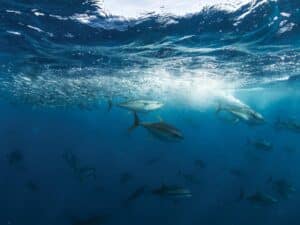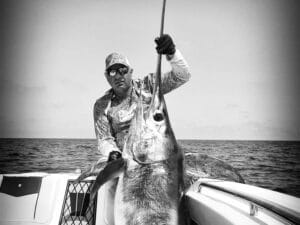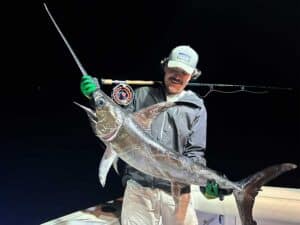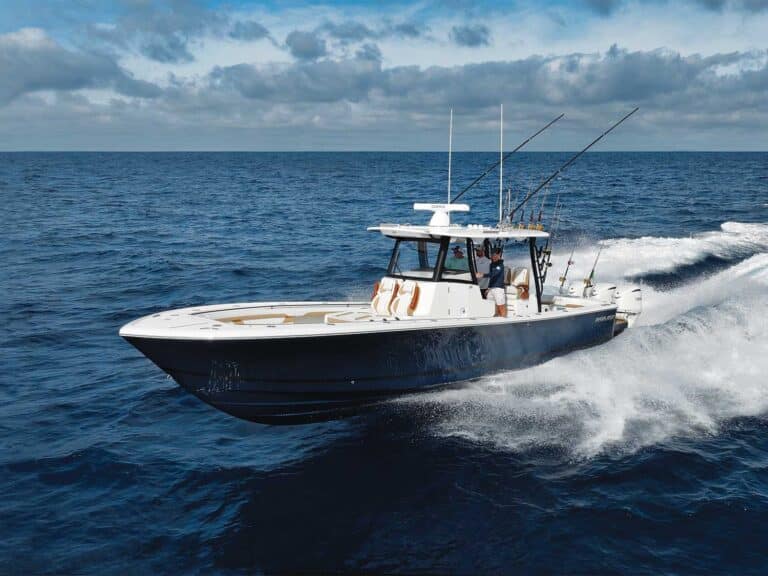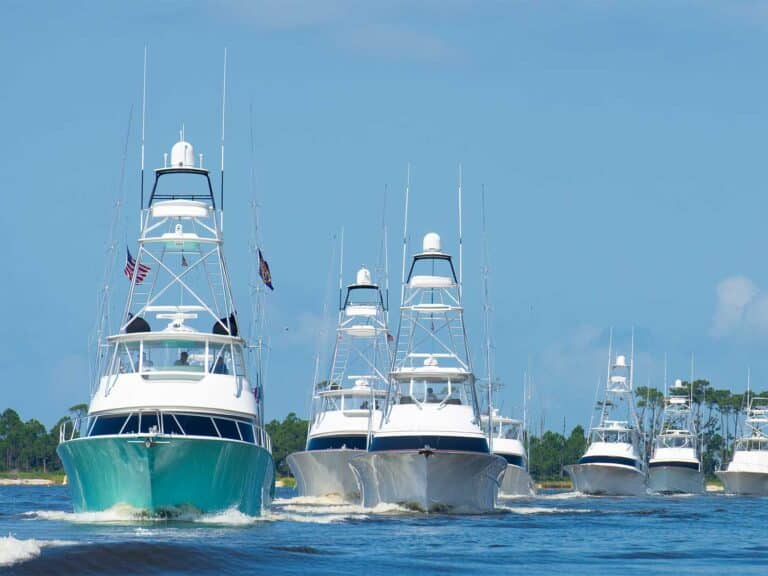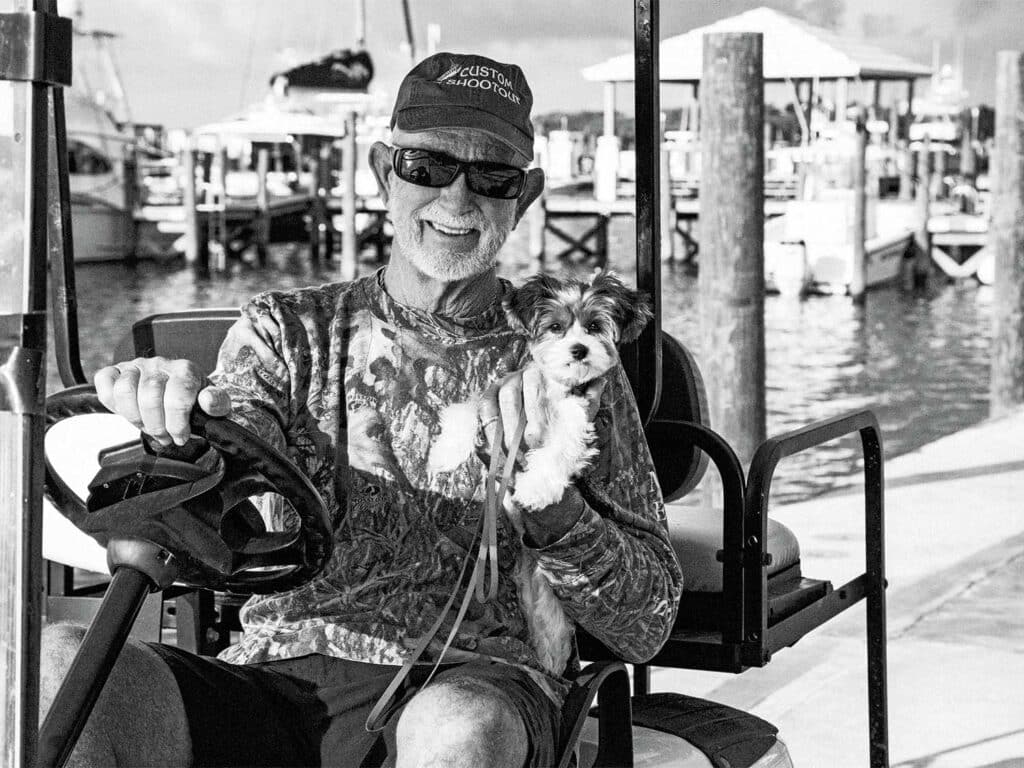
Special delivery: Sign up for the free Marlin email newsletter. Subscribe to Marlin magazine and get a year of highly collectible, keepsake editions – plus access to the digital edition and archives.
Growing up on the Bahia Mar docks in Fort Lauderdale, Florida, Capt. Frank “Skip” Smith was baiting hooks on his father Capt. Frank Smith’s drift boat at the age of 5, spending every weekend and summer vacation working aboard that vessel until he turned 18. He moved up to charter fishing, caught a white marlin on his first day as a mate, and was hooked on billfishing. He later began swordfishing commercially until a longlining injury sidelined him in 1979. Smith then went to work for Jerry Dunaway aboard The Hooker, where they went on to set a memorable string of world records together, rewriting sport-fishing history along the way.
Q: You set so many IGFA records during your career at the helm. Which ones stand out the most?
A: We set a total of 49, with most of them being billfish on light tackle. As far as a favorite, I’d say all of them are really special. There was one we set in 1989 with Marg Love as the angler on The Hooker when we were in Costa Rica that stands out though. Fishing had been slow that week in mid-March, and the water was a little dirty. We were set up for a sailfish record with Shimano TLDs, Stren 4-pound-test and 125-pound-test leader. A fish came up on the teaser, so I yelled, “Big sailfish, throw the 4-pound!” The fish ate and then came up jumping; it was a blue marlin. Nine and a half hours later, we landed a 162-pound blue and set the women’s record that still stands. We also caught four swordfish records in one week out of Tropic Star Lodge, which was unbelievable. Just incredible fishing that season.
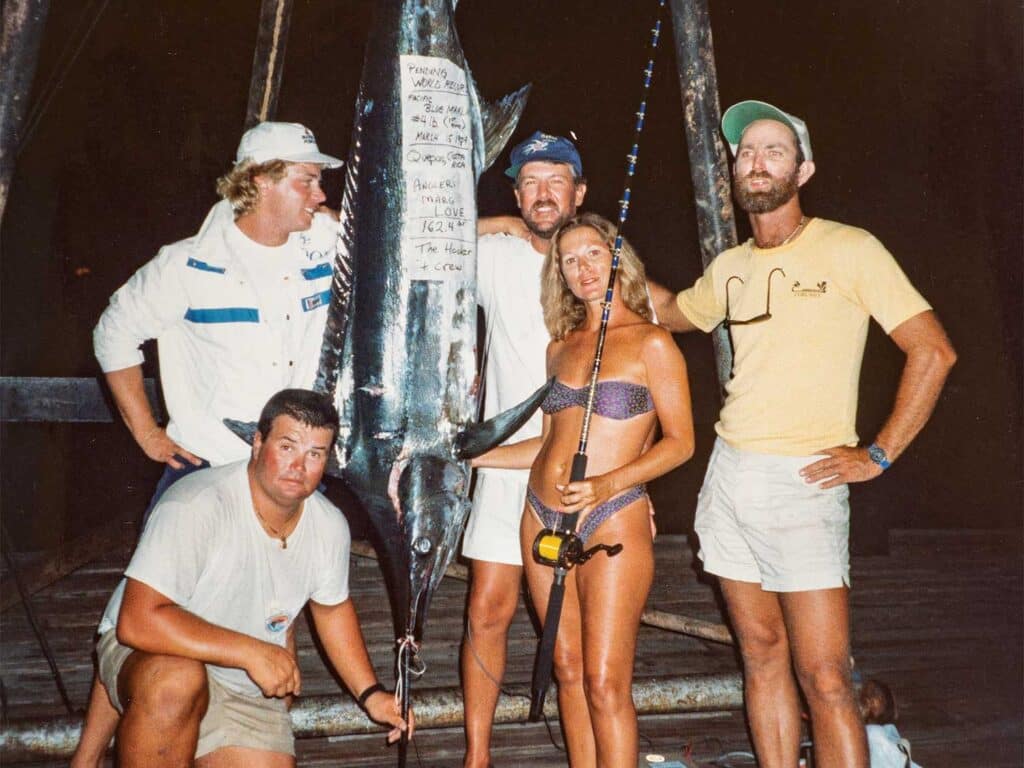
Q: Did you know that you were going to fish professionally as a career?
A: I had no idea what I wanted to do in life, but fishing was my passion, and I just followed the opportunities. Growing up on the drift boat taught me a lot about boat maintenance and also about how to deal with the public. I didn’t care about the money—I just wanted to be happy and have some fun.
Q: Of all the places you’ve fished, which ones hold the fondest memories?
A: All the countries we fished were great, partly because we were there during the seasons and times of the year that offered the best fishing. Panama for all the swordfish records, and a few black marlin too. Venezuela had crazy-great fishing, and then Australia, being able to run my own boat there and catch Jerry his grander black marlin.
Q: Any places you care not to return?
A: A few, but not too many. I liked Cabo Blanco, Peru, when we were there in 1987, but it was scary when the Shining Path guerrillas threatened to kill us all. We packed up everything and left the country in just a few hours. [The full story is available in Smith’s book, Tales of a Hooker and Her Madam. —Ed.]
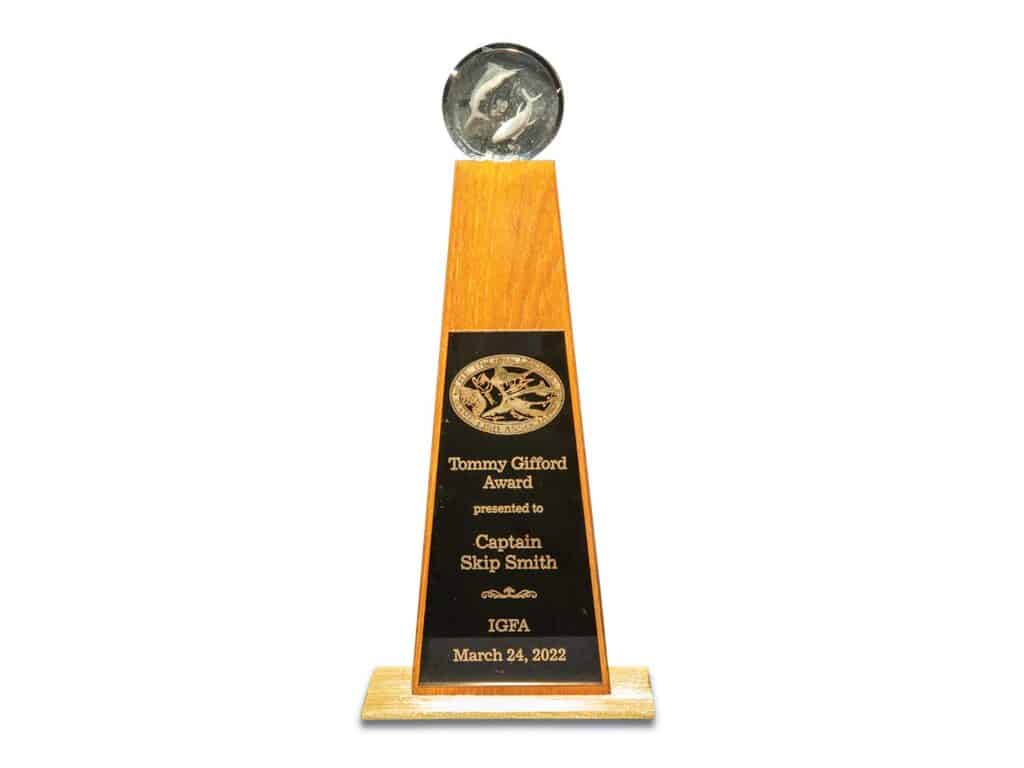
Q: Favorite fish story?
A: Way too many. We’d finally figured out how to catch these billfish on ultra-light tackle, and then went on to catch the first swordfish on 4-pound-test, the first blue marlin on 4-pound-test and the first sail on 4-pound fly tippet, just to name a few.
Q: You’re the president of Smith-Merritt Insurance. How did you get into that business?
A: One of our best charter customers owned an insurance agency and brokerage, and he kept asking me to go to work for him on his boat. One day he ran up on the bridge while we were fishing in Australia and said: “I’ve got it! You can do yacht insurance and run my boat.” I had told him many times before that when things ended with Jerry Dunaway, I might want to start a business, so that’s what we did.
Q: How did you transition to running the Custom Shootout?
A: Steve Roy and Harry Shufflebarger came up with the idea for the tournament right after 9/11 to raise money for the survivors and rescuers, so they came to Roy Merritt, and Roy sent them upstairs to my office. I had been involved in a few tournaments, and it all started right there. Twenty years later, we’ve raised over $2 million for charities, and the economic impact for the Bahamas is staggering—probably more than $15 million over two decades.
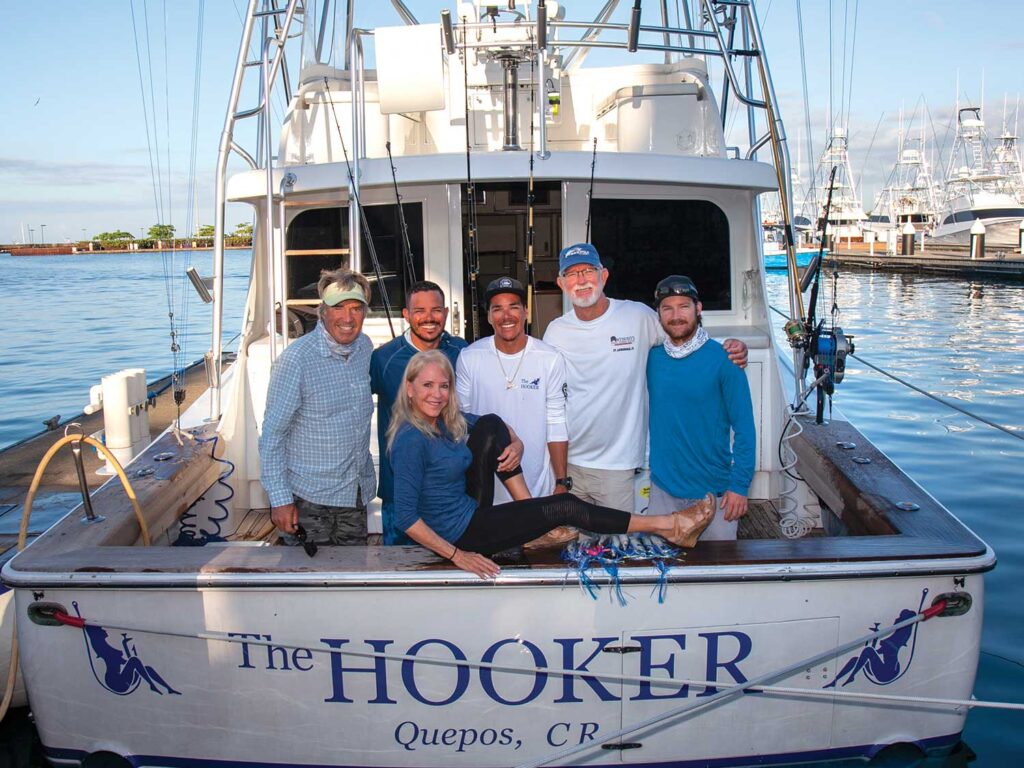
Q: Biggest challenges as a tournament director?
A: The damn weather, for one. It’s also not easy to get boats to run over to fish tournaments in the Bahamas these days either; just the fuel cost alone is an issue.
Q: You’re chairman of the nominating committee for the IGFA’s Tommy Gifford Award, presented to the sport’s legendary captains and crews. Why is that such a special award?
A: The primary criteria for receiving the Tommy Gifford Award from the IGFA is that the captain or crewmember must have provided leadership in their trade and have earned the respect of their peers, providing a meaningful contribution to the sport of recreational angling over an extended period of time. The nominee must also demonstrate that they have espoused the angling ethical standards stated by the founders of the IGFA. As the late Mark Sosin once said, “To earn the respect of your peers cannot be bought; it has to be earned over the years.” I feel that to receive this award from one’s peers, it’s the highest honor you can receive from a sport you love.
Read Next: Here’s a brief excerpt from Smith’s book, Tales of a Madam and Her Hooker.
Q: Any advice for any up-and-coming captains or crews these days?
A: Respect your peers and your competitors, and always try hard and enjoy it, because it goes by quickly. And keep a good log—you never know, one day you might want to write a book. And be happy. If you’re not happy, find another job. Things always seem to work out.
Q: What’s on the horizon?
A: Playing tennis and more fishing; traveling with my wife, Debra Todd, to see a lot of the friends we’ve met in our travels, and to a few of the places we both haven’t been to yet, such as the Galapagos and the Azores. Being happy. —Sam White
